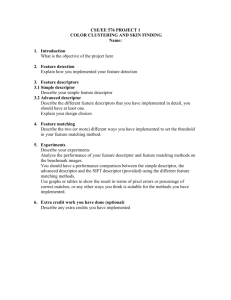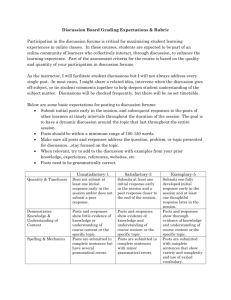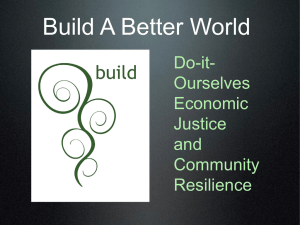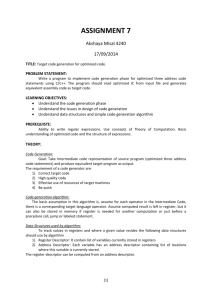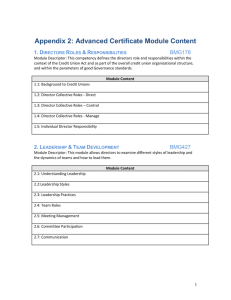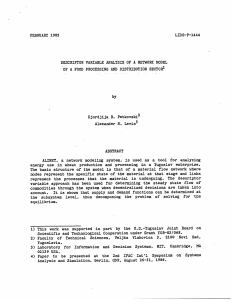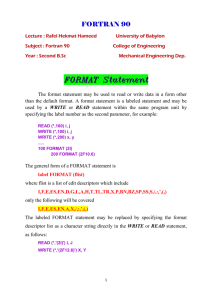Edmodo US Norway Sp2015 debriefing summary
advertisement
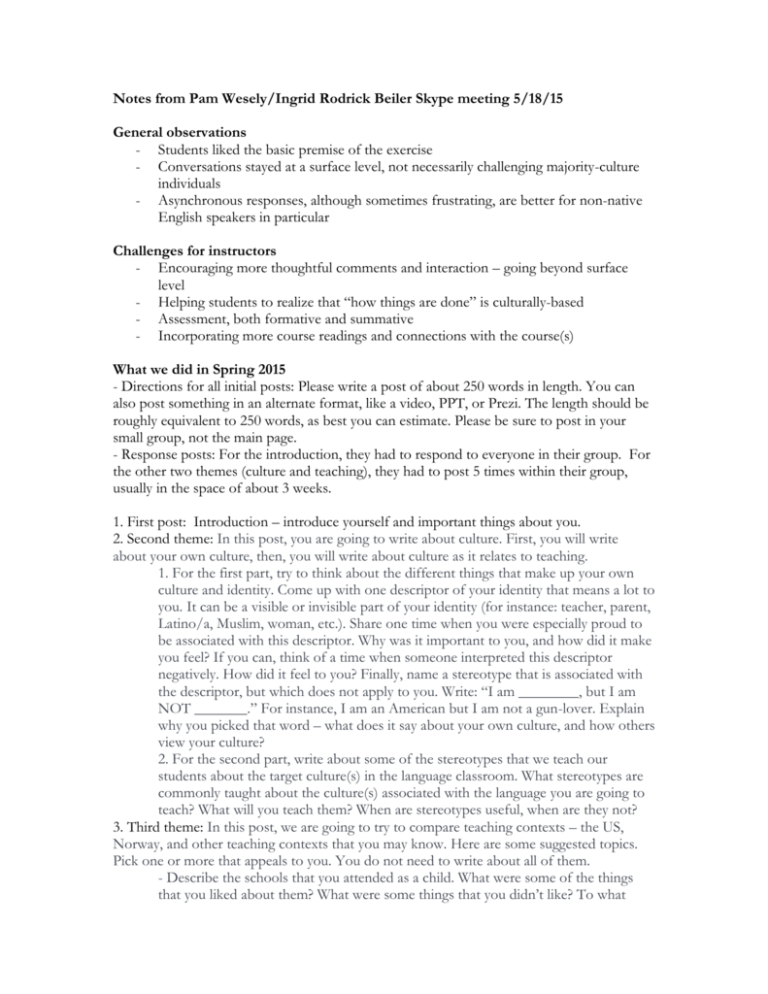
Notes from Pam Wesely/Ingrid Rodrick Beiler Skype meeting 5/18/15 General observations - Students liked the basic premise of the exercise - Conversations stayed at a surface level, not necessarily challenging majority-culture individuals - Asynchronous responses, although sometimes frustrating, are better for non-native English speakers in particular Challenges for instructors - Encouraging more thoughtful comments and interaction – going beyond surface level - Helping students to realize that “how things are done” is culturally-based - Assessment, both formative and summative - Incorporating more course readings and connections with the course(s) What we did in Spring 2015 - Directions for all initial posts: Please write a post of about 250 words in length. You can also post something in an alternate format, like a video, PPT, or Prezi. The length should be roughly equivalent to 250 words, as best you can estimate. Please be sure to post in your small group, not the main page. - Response posts: For the introduction, they had to respond to everyone in their group. For the other two themes (culture and teaching), they had to post 5 times within their group, usually in the space of about 3 weeks. 1. First post: Introduction – introduce yourself and important things about you. 2. Second theme: In this post, you are going to write about culture. First, you will write about your own culture, then, you will write about culture as it relates to teaching. 1. For the first part, try to think about the different things that make up your own culture and identity. Come up with one descriptor of your identity that means a lot to you. It can be a visible or invisible part of your identity (for instance: teacher, parent, Latino/a, Muslim, woman, etc.). Share one time when you were especially proud to be associated with this descriptor. Why was it important to you, and how did it make you feel? If you can, think of a time when someone interpreted this descriptor negatively. How did it feel to you? Finally, name a stereotype that is associated with the descriptor, but which does not apply to you. Write: “I am ________, but I am NOT _______.” For instance, I am an American but I am not a gun-lover. Explain why you picked that word – what does it say about your own culture, and how others view your culture? 2. For the second part, write about some of the stereotypes that we teach our students about the target culture(s) in the language classroom. What stereotypes are commonly taught about the culture(s) associated with the language you are going to teach? What will you teach them? When are stereotypes useful, when are they not? 3. Third theme: In this post, we are going to try to compare teaching contexts – the US, Norway, and other teaching contexts that you may know. Here are some suggested topics. Pick one or more that appeals to you. You do not need to write about all of them. - Describe the schools that you attended as a child. What were some of the things that you liked about them? What were some things that you didn’t like? To what extent do you think these characteristics remain in place today (where you went to school as a child)? - Describe a favorite teacher (or teachers) from your past educational experiences – what qualities did they have? What was their classroom like? - Describe your dream job. What type of school do you want to teach in? What subjects and levels would you be teaching? What would your classroom look like? - What do you think is valued in the schools where you want to teach? What is not valued? What types of students succeed, what types of students might not succeed? - Write about what you know about schools in different countries. What do you think are some big differences among schools in different places of the world? Proposed logistical changes for Spring 2016 - Encourage more video posts (or require if possible) - Structure discussions thusly: post in week 1; respond to others (with questions) in week 2; respond to questions you were asked in week 3 - Consider different roles for group participants – writer of initial prompt? Follow-up? Moderator? [something to be researched in literature on online discussions] 1. Introductions (as in the past) 2. Topic 1: School systems - What is valued in your school systems by administrators, teachers, parents, and students? How do you know this? - What makes a “success” in school? What is “success” for a student? For a school? - What happens when a student does not succeed? What happens when there is a challenge (disciplinary, academic) with students? 3. Topic 2: Culture - Looking back at your first discussion posts, can you go back and reflect on how your own culture comes forth with that? - (Keep most other components of the culture theme above, especially the modified “Circles of my Multicultural Self” activity) A few comments on the changes: these will perhaps help students to better approach the idea of culture and their culturally-formed ideas of what schooling might be. It will help to address the issues of social justice and equity in schooling. The discussion of school systems will be an easier way to start than the quick start with culture, and it might reveal some interesting differences that can be discussed and then, subsequently, related to culture.
